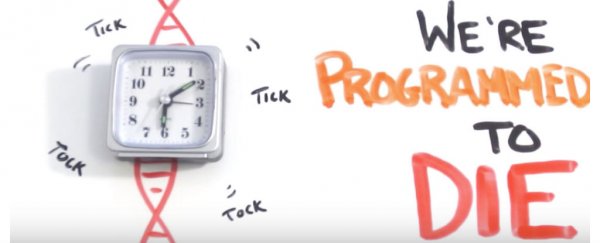
Right now, the global average life expectancy is 71 years for men and 73.5 years for women, but in many countries, this figure is much higher, with Spain, Japan, Australia, Switzerland, and many others reporting national life expectancies of 83 years, or not far off. That humans can consistently live for this long is one of our most significant accomplishments, but we're nowhere near mastering the biological immortality seen in other species. And here's why.
Some 10,000 years ago, humans didn't have much hope of living beyond 30, and just 100 years ago, the average life expectancy was just 50 years of age. We've made some incredible progress, particularly over the past century, and it's likely that we'll continue making revolutionary changes to the way we live and die, thanks to scientific discovery.
Research suggests that a whole host of factors come together to influence how long you as an individual will live, including your genes, where you live, what you eat, whether you smoke, and how much UV and radiation you're being exposed to. Separate to all of that, says the episode of AsapSCIENCE above, we also have a biological clock buried deep within our genetic makeup, and it can only run for so long. "In other words," says the video, "we're programmed to die."
If you were following science news closely in 2015, you probably noticed a trend - various studies claiming to have made a discovery that brings us closer to understanding the process of ageing. It's a good bet that slowing down the ageing process is going to be a major focus of research in the decades to come, and the key to that will be in manipulating the process of cell division that gradually eats away at our DNA as we age.
Each time our cells divide as part of the natural ageing process, they make a copy of their DNA too. These copies are packed into our 23 chromosomes, but not perfectly - the ends are progressively skipped over in the replication process. To protect against important DNA being chopped off the ends of our chromosomes as we age, we have structures called telomeres, which are basically meaningless repeats of DNA that we can afford to lose, says AsapSCIENCE.
But these telomeres can only do so much - they too get chopped down in the replication process, and once they're gone, our cells stop dividing.
Biological immortality comes in the form of certain species of flatworm that can endlessly replicate their telomeres, which protects them from the inevitable termination of cell replication that we face. So why can't humans figure out how to replicate our own telomeres to stave off ageing and death, even if just for a little while?
As the video above explains, the reason we can't have nice things like endlessly replicating telomeres is… cancer - that old chestnut. I'll let the boys at AsapSCIENCE explain, and when they're done, MinuteEarth is also here to tell you why you're going to die. You're welcome?

